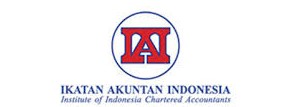Kinerja Maqashid Syariah dan Financial Sustainability Bank Umum Syariah di Indonesia
Abstract
Research on the relationship between maqashid sharia performance and financial sustainability of Islamic banks in Indonesia is still rare. Research related to the effect of performance on financial sustainability of Islamic banks mostly uses CAMEL ratio analysis which only emphasizes financial performance. This study aims to examine the relationship between maqashid sharia performance and financial sustainability of Islamic Commercial Banks in Indonesia. This research uses quantitative methods with multiple regression analysis techniques. The research sample is 58 data from 12 Islamic Commercial Banks registered on OJK in 2016 - 2020. The results showed that IMS had a significant negative effect on FSR. These results indicate that the higher the maqashid sharia performance achieved, it actually causes a decrease in financial sustainability as measured by the Financial Sustainability Ratio of the Islamic bank. Future research is expected to not only test the factors that affect the financial sustainabilty of Islamic banks, but also other types of Islamic entities.
References
Adzhani, R., & Rini. (2017). Dengan Pendekatan Maqasid Syariah. Jurnal Akuntansi Dan Keuangan Islam, 5(1), 5–30. https://doi.org/https://doi.org/10.35836/jakis.v5i1.11
Ayayi, A. G., & Sene, M. (2010). What Drives Microfinance Institution’s Financial Sustainability. Journal of Developing Areas, 44(1), 303–324.
Darmawati, D. (2021). The Impact of Maqashid Syariah Based Performance on Sustainable Finance Implementation of Indonesian Islamic Banks. Proceedings of the First Lekantara Annual Conference on Public Administration, Literature, Social Sciences, Humanities, and Education (LePALISSHE). https://doi.org/10.4108/eai.3-8-2021.2315133
Elkington, J. (1997). Cannibals with Forks : The Triple Bottom Line of 21st. Century Business (A. Henriques & J. Richardson (eds.)). Capstone. https://doi.org/10.4324/9781849773348
Ghozali, I. (2013). Aplikasi Analisis Multivariate dengan Program IBM SPSS 21 (7th ed.). Badan Penerbit Universitas Diponegoro.
Guntz, S. (2011). Sustainability and profitability of microfinance institutions. Research Papers in International Finance and Economics, 48. http://www.ohm-hochschule.de/fileadmin/Fachbereiche/bw/studienschwerpunkte/international_business/Master/CAIFD/ResearchPapers/SustainabilityAndProfitabilityOfMicrofinanceInstitutions_Guntz.pdf
Mohammed, M. O., & Taib, F. M. (2015). Developing Islamic Banking Performance Measures Based on Maqasid Al-Shari’Ah Framework: Cases of 24 Selected Banks. In Journal of Islamic Monetary Economics and Finance (Vol. 1, Issue 1, pp. 55–77). https://doi.org/https://doi.org/10.21098/jimf.v1i1.483
Mutia, E., & Musfirah, N. (2017). Pendekatan Maqashid Shariah Index sebagai Pengukuran Kinerja Perbankan Syariah di Asia Tenggara (Maqashid Sharia Index Approach as Performance Measurement of Sharia Banking in Southeast Asia). Jurnal Akuntansi Dan Keuangan Indonesia, 14(2), 181–201. http://jaki.ui.ac.id/index.php/index/index
Nazilaturrohmah, R., Noor, R. A. G., & Anggraeni, E. (2021). Financial Sustainability Ratio (FSR) Pada BUS di Indonesia Tahun 2012-2018: Penggunaan Metode Maqashid Syariah Index (MSI). Al-Tijary: Jurnal Ekonomi Dan Bisnis Islam, 6(2), 79–95. https://doi.org/http://dx.doi.org/10.21093/at.v6i2.3068
Notoadmojo, I., & Rahmawaty, A. (2016). Analisis Faktor-Faktor Yang Memengaruhi Financial Sustainability Ratio Pada Bank Umum Syariah Di Indonesia Periode 2010 - 2014. Equilibrium: Jurnal Ekonomi Syariah, 4(1), 20–42. https://doi.org/10.21043/equilibrium.v4i1.1836
Nurhayati, S., & Wasilah, A. (2019). Akuntansi Syariah di Indonesia (5th ed.). Jakarta: Penerbit Salemba Empat.
Nurmahadi, N., & Setyorini, C. T. (2018). Maqasid Syariah Dalam Pengukuran Kinerja Lembaga Keuangan Syariah di Indonesia. JAS (Jurnal Akuntansi Syariah), 2(1), 29–55. https://ejournal.stiesyariahbengkalis.ac.id/index.php/jas/article/view/130
Praptiningsih, P., Nastiti, H., & Nopiyanti, A. (2022). Analysis of Corporate Governance, Intellectual Capital, and Financial Performance Using Conventional Methods and Maqashid Sharia Index (MSI) on the Implementation of Sustainable Finance in Sharia Banking in Indonesia. Dinasti International Journal of Economics, Finance & Accounting, 3(4), 391–411. https://doi.org/10.38035/dijefa.v3i4.1430
Ramadhani, R., & Mutia, E. (2016). Analisis Perbandingan Kinerja Perbankan Syariah Di Indonesia dan Malaysia Ditinjau Dari Maqashid Shariah Index. Simposium Nasional Akuntansi2, 1–24. http://lib.ibs.ac.id/materi/Prosiding/SNA XIX (19) Lampung 2016/makalah/075.pdf
Salman, K. R., & Farid, M. (2016). Pengukuran Kinerja Sosial Berbasis Indeks Maqashid : Kasus di Indonesia. Simposium Nasional Akuntansi XIX, Lampung, 1–25. http://lib.ibs.ac.id/materi/Prosiding/SNA XIX (19) Lampung 2016/makalah/082.pdf
Santoso, J., Khairunnisa, K., & Triyanto, D. N. (2017). Pengaruh Capital Adequacy Ratio, Non Performing Loan dan Loan to Deposit Ratio Terhadap Financial Sustainibility Ratio (Studi Empiris Pada Bank Umum Swasta dan Nasional yang terdaftar di Bursa Efek Indonesia Periode 2011-2015). COMPETITIVE Jurnal Akuntansi Dan Keuangan, 1(2). https://doi.org/10.31000/competitive.v1i2.232
Saputri, K. O. (2019). Kinerja Keuangan Terhadap Kemampuan Berkelanjutan Perusahaan. Jurnal Riset Akuntansi Kontemporer, 11(1), 24–32. https://doi.org/10.23969/jrak.v11i1.1869
Septi, R., & Pangestuti, I. R. D. (2016). Analisis Rasio Kinerja Keuangan Terhadap Financial Sustainability Bank Perkreditan Rakyat (BPR) di Jawa Tengah (Periode 2010-2014). Diponegoro Journal of Management, 5(2003), 15.
Sholikah, A. M., & Miranti, T. (2021). Factors Influence Financial Sustainability Banking in Indonesia. Al-Tijary: Jurnal Ekonomi Dan Bisnis Islam, 6(1), 41–50. https://doi.org/http://dx.doi.org/10.21093/at.v6i1.2497
Sudana, I. M. (2009). Manajemen Keuangan: Teori dan Praktik. Airlangga University Press. https://books.google.co.id/books?id=i-CkDwAAQBAJ&printsec=frontcover&hl=id&source=gbs_ge_summary_r&cad=0#v=onepage&q&f=false
Sutikno, H. T., & Aisyah, E. N. (2022). Financial Performance and Financial Sustainability: The Role of Institutional Ownership as Moderating Variable. Journal of Economics, Finance And Management Studies, 05(04), 1165–1172. https://doi.org/10.47191/jefms/v5-i4-25







.png)
.png)
